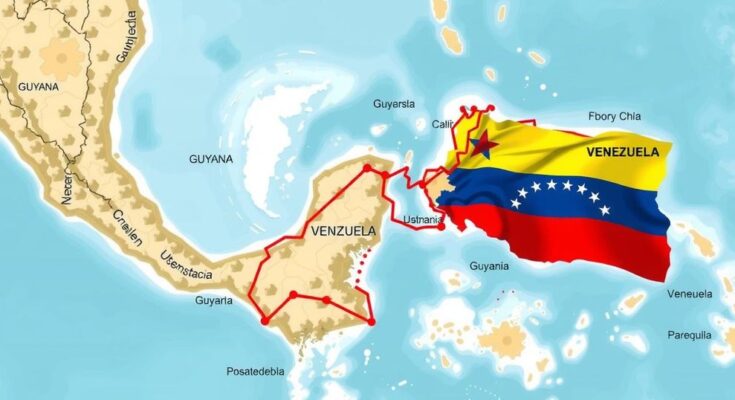Guyana has expressed grave concern over Venezuela’s recent actions that allegedly violate the Argyle Agreement and an International Court of Justice order regarding the territorial dispute over Essequibo. Guyana categorically rejects Venezuela’s claims and reiterates its commitment to peaceful dispute resolution and international law. The situation escalates tensions as Guyana urges Venezuela to adhere to its obligations and respect the ongoing judicial processes.
The government of Guyana has voiced significant apprehension regarding what it perceives as clear breaches by Venezuela of the Argyle Agreement and the International Court of Justice’s (ICJ) binding order, both enacted in December 2023. The Ministry of Foreign Affairs of Guyana highlighted that Venezuelan President Nicolás Maduro’s announcement on January 7, 2024, about appointing a governor for the disputed Guayana Esequiba territory constitutes a unilateral action that contravenes the established agreements meant to maintain peace and prevent escalation of territorial disputes.
In its statement, Guyana insisted that this development not only disregards the spirit of the Argyle Agreement, signed with the presence of international entities but also poses a significant threat to constructive dialogue and peace between the nations. The Guyanese government emphasizes that the people residing in the Essequibo region are nationals of Guyana and that any attempt by Venezuela to conduct elections in this territory violates international law and the authority of the ICJ.
Furthermore, in light of previous events, including a referendum claimed to have overwhelming support for Venezuela’s territorial claims over Essequibo, the ICJ had previously cautioned against such annexation endeavors. The ICJ reiterated its directive for Venezuela to avoid actions that could exacerbate the territorial dispute, currently under adjudication. Guyana reiterated its absolute rejection of Venezuela’s claims and reaffirmed its commitment to the ICJ process as directed by the United Nations Secretary-General under the Geneva Agreement of 1966.
The border dispute between Guyana and Venezuela centers on the oil-rich region of Essequibo, which encompasses about two-thirds of Guyana’s territory and is home to a considerable portion of its population. In 1899, an arbitral award established the boundary; however, Venezuela has long contested it, asserting claims over the Essequibo region. The conflict has escalated over the years, prompting international involvement and a push for resolution through the ICJ, especially since both nations signed the Argyle Agreement, which aims to provide a framework for dialogue and peaceful coexistence in resolving their territorial disputes. Recent actions by Venezuela, including claims associated with an election in Guayana Esequiba, have reignited tensions and drawn significant responses from the Guyanese government.
In summary, Guyana is firmly asserting its stance against Venezuela’s recent actions, which it views as violations of international agreements and laws surrounding their territorial dispute. The government of Guyana is committed to engaging in dialogue under established protocols while urging Venezuela to adhere to international obligations, refraining from activities that threaten its sovereignty. As the ICJ continues to deliberate on the legitimacy of the historical boundary claims, both nations are encouraged to respect the processes in place to reach an amicable resolution to this long-standing controversy.
Original Source: jamaica-gleaner.com




